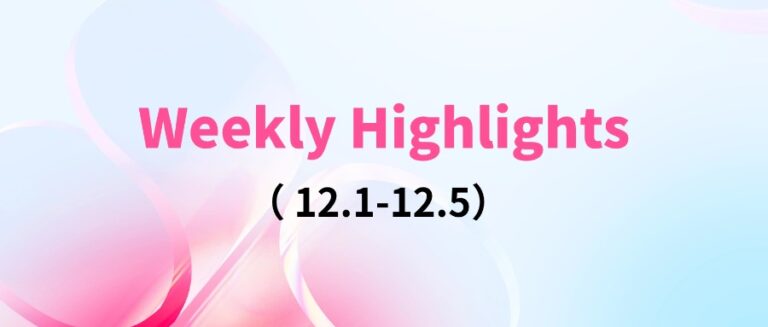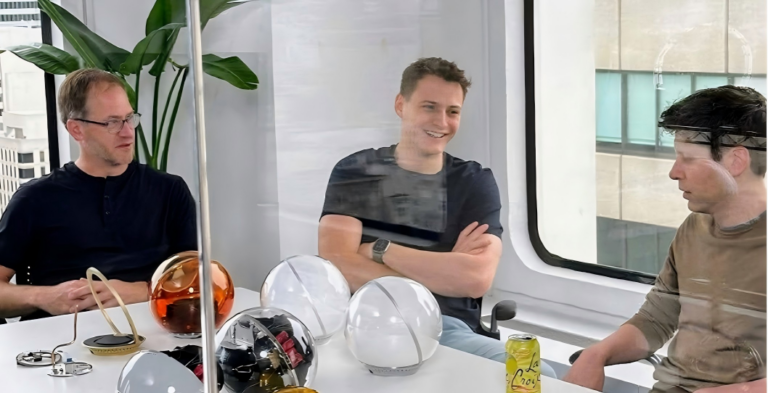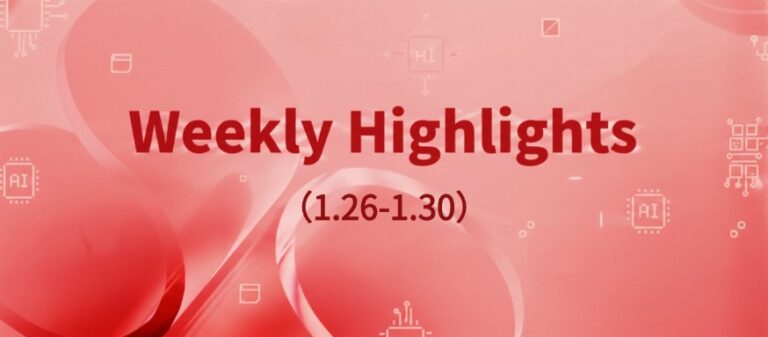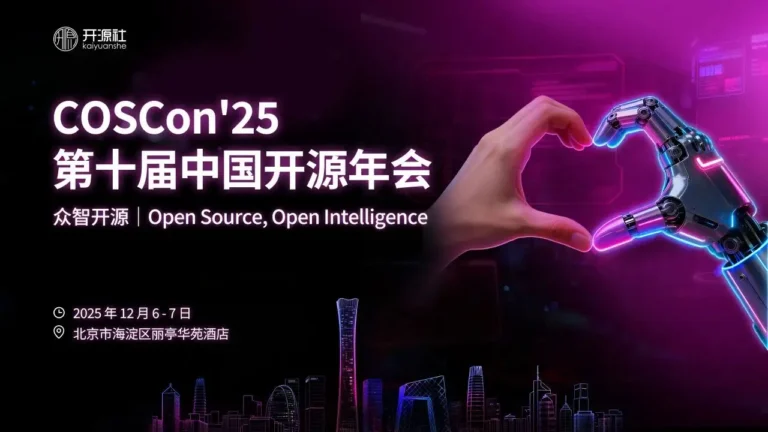Command Palette
Search for a command to run...
From Beneficiary to Contributor, Zhu Kai's ClickHouse Upgrade Journey

The 2020 China Open Source Annual Conference (COSCon'20), hosted by Open Source Society, will kick off this weekend. HyperAI has always been paying attention to the trends in the open source field. We interviewed Zhu Kai, a lecturer at this open source conference, to share his experiences and insights in the past ten years of participating in the open source industry.
Having worked in the IT field for 10 years, Zhu Kai said that he has been dealing with open source software throughout his entire career.
During the past decade, he has witnessed the tremendous changes in the domestic open source environment, and upgraded from an ordinary user of open source projects to an important contributor to well-known open source projects such as ClickHouse and Apache DolphinScheduler.

Zhu Kai said that devoting himself to the open source industry has broadened his horizons and given him a bigger stage.
Amazed by the performance, I started to evangelize ClickHouse
In recent years, ClickHouse, an open source column-based database used for online analytical processing, has received great attention in domestic and international technical communities. It is also favored by major technology companies. Toutiao, Tencent, and others have put it into large-scale use.
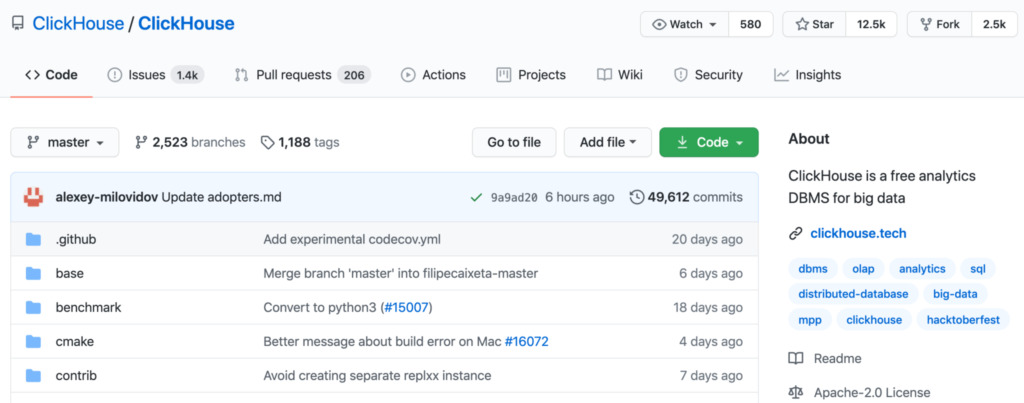
In April 2017, Zhu Kai first came into contact with ClickHouse on the recommendation of a friend. This OLAP database, open sourced by Russian Internet giant Yandex, left a deep impression on Zhu Kai with its overwhelming performance advantage, and he has since become a loyal fan of ClickHouse.
For example,With a dataset size of 100 million, ClickHouse's average response speed surpasses that of multiple OLAP open source engines.For example, it is 6.08 times that of Vertica, 18 times that of Greenplum, 126 times that of Hive, and 429 times that of MySQL.

After some comparison and discussion, Zhu Kai and his team quickly replaced the similar products they were using at the time with ClickHouse, and the related performance was greatly improved.
As a user,During the learning and use process, Zhu Kai will report any bugs he finds immediately and also translate some English documents.
As he got to know ClickHouse better and better, he gradually discovered some problems. "There is a lack of learning materials for ClickHouse. Apart from the official manual, there is basically no other systematic material. Even the official manual lacks some explanations of the principles."
As a beneficiary and contributor of ClickHouse, Zhu Kai feels that he can do more to give back to the project.
At the end of 2018, Zhu Kai decided to organize and summarize his experience in practice and learning, and write it into a book, hoping to share this knowledge with more developers.
In May 2020, only a year and a half later, his book "ClickHouse Principle Analysis and Application Practice" was published.
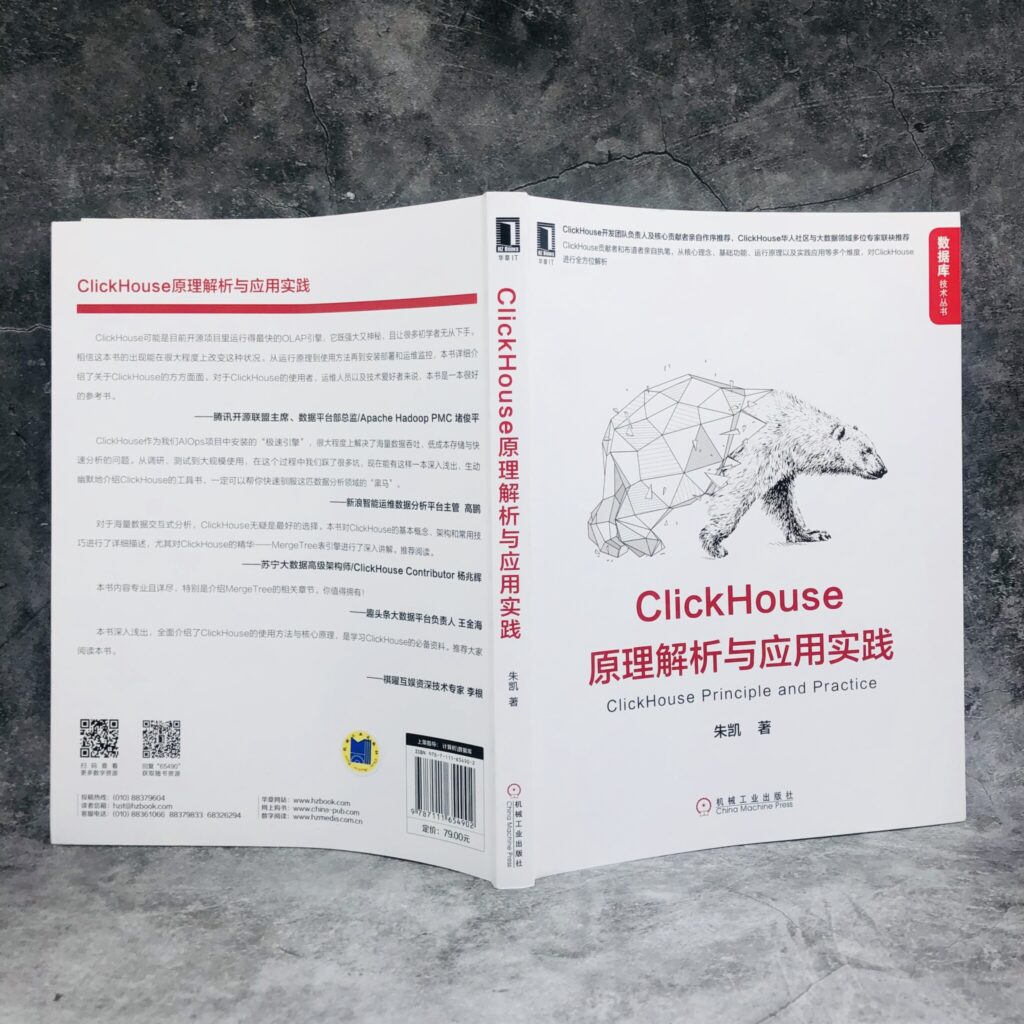
In the book, Zhu Kai comprehensively introduces and interprets the era background, development history, core concepts, basic functions, and operating principles of ClickHouse, helping more people to quickly understand ClickHouse. In addition, due to the rapid iteration of technology, Zhu Kai also specially operates the public account "ClickHouse's Secret Base" to supplement it.
That’s it. Not content with being just a beneficiary, Zhu Kai wrote his love for open source into the code and books of open source projects. This is also what open source taught him.Not only should we be a simple receiver of information, but we should also learn to be an outputter of information.
From User to Committer, it is not difficult to participate in open source
In addition to ClickHouse, as a senior open source contributor, Zhu Kai is also the committer of the star open source project Apache DolphinScheduler.
In April this year, when Zhu Kai learned that he had become a DolphinScheduler Commmitter, he was very excited. "In my value system, for a programmer, being able to become an Apache Committer and having an Apache mailbox is absolutely the supreme honor."
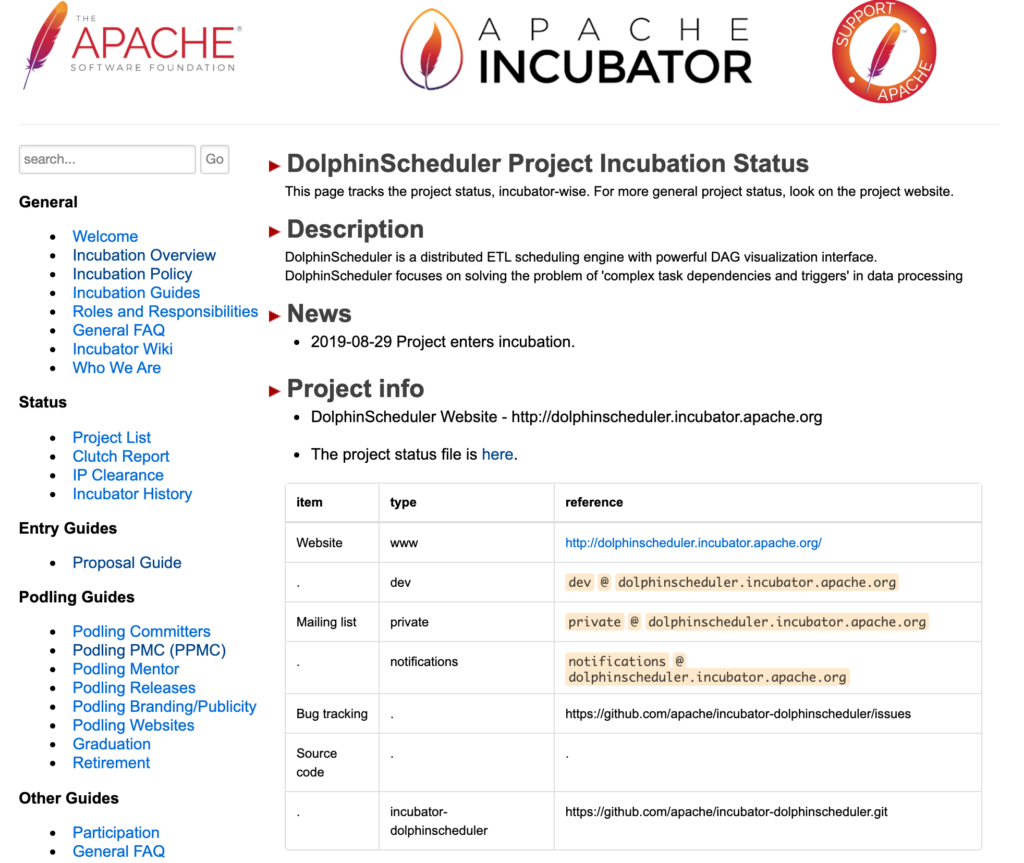
In addition to being excited, he also shared his insights in the open source field over the years with other developers.
- It is important to learn the rules.Every place has its own rules of the game. Since we want to participate in it, it is naturally important to recognize and follow its cultural concepts.
Taking ASF (Apache Software Foundation) as an example, ASF follows elite autonomy and voting culture. For specific details, I suggest you search "Apache Way" to learn more. - If you want to contribute, you can do more than just write code.Many people, including me, have long believed that only submitting code counts as a contribution, but this is not the case.
There are many forms of contribution, including code, document writing, community question answering, issue raising, publicity and preaching, etc.So find the area you are good at and keep producing and contributing.
- When participating in open source, everyone can have their own ulterior motives.We have been taught since childhood that heroes are likely to get hurt and sacrifice themselves in the end. So many people, including me, have believed for a long time that open source is a sacred thing, and that we must not have any distractions, and that we can only use our personal time to contribute without any income, otherwise it would be "impure."
Actually, it is not. Experience tells us thatIf something is not driven by profit, it cannot last long. If you only rely on momentary passion, you can only get three minutes of enthusiasm.
- Take the first step quickly.Often, we always stay at the stage of imagination (YY) and planning (self-entertainment), and are reluctant to take action, not knowing how important it is to take the first step. This is the beginning of breaking the circle. Standing outside the circle and observing it are completely different experiences from being in it. If you want to participate in open source and become a Contributor of an open source project, start now!
The future of domestic open source: full of confidence
Looking back, China's open source projects began around 1995, and have only a history of more than 20 years.
But in the past two decades, domestic open source has undergone earth-shaking changes. Zhu Kai has personally witnessed the changes in the domestic open source environment in the past decade, and sincerely said: "The atmosphere of open source in China is getting better and better, especially in 2019."
Why do you say that? Zhu Kai explained: "Many people in the industry are saying that 2019 is the year of the explosion of open source in China.Indeed, this year, among GitHub's 40 million registered users worldwide, developers from China ranked second in both number and contribution.Among China’s active open source project contributors, more than 40% joined in 2019.”
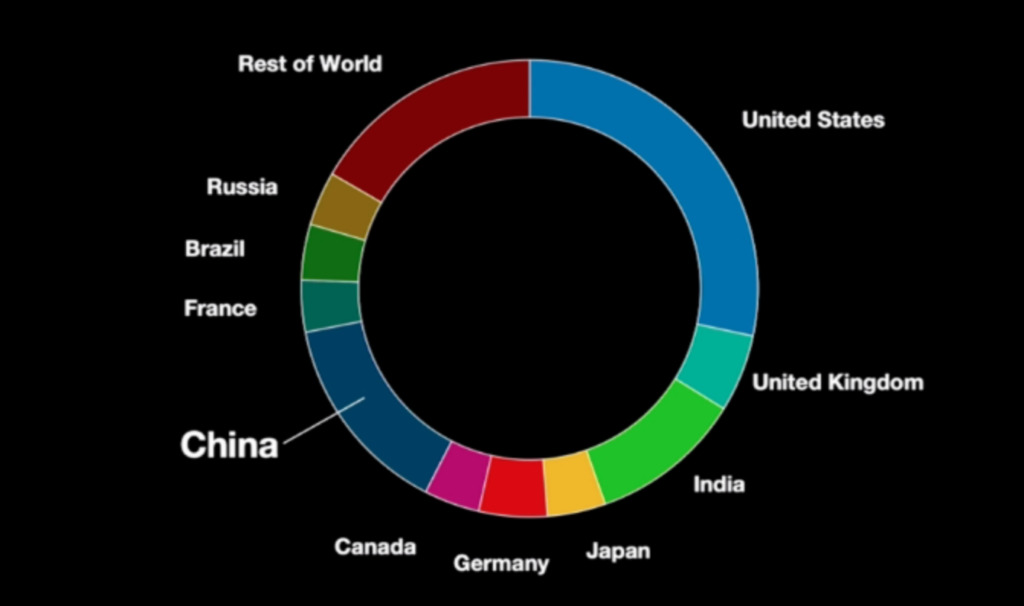
For example, as of the end of 2019, 17 Chinese open source projects have joined the Apache Foundation, which Zhu Kai is particularly concerned about. More and more Chinese people have become Apache members.
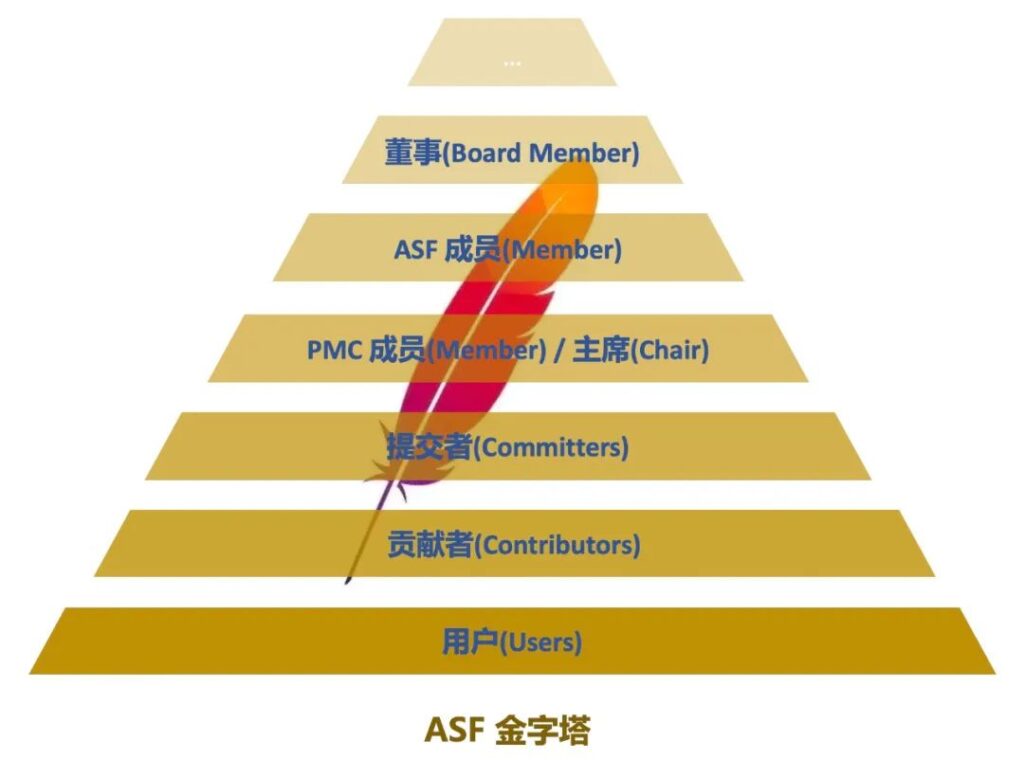
Today, China also has its own open source protocol "Mulan Permissive License" and open source foundation "Open Atom Open Source Foundation", and everything is progressing step by step.
These changes have given Zhu Kai great confidence in China's open source industry: "I believe that the threshold for people to participate in open source will become lower and lower in the future, and China's local open source power will become stronger and stronger."
COSCon'20 registration is in progress, Teacher Zhu Kai is waiting for you
The 2020 China Open Source Conference (COSCon'20), the most influential annual open source event in the industry, will be held on October 24-25.This year's guest sharing will be a combination of online and offline formats, discussing the theme of Open Source for Good from 11 directions including artificial intelligence, open source governance, data technology, education and charity.
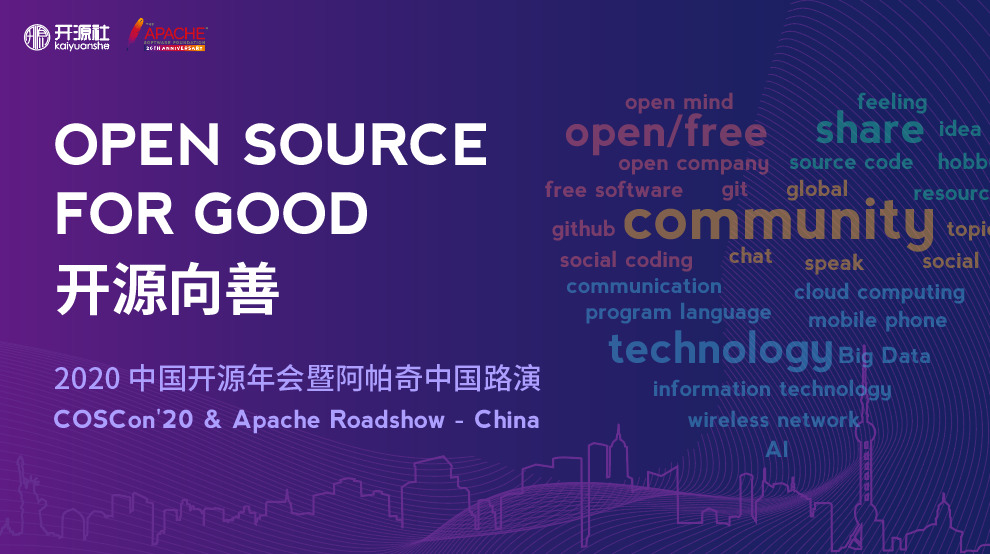
Zhu Kai will give a keynote speech entitled "The Origin of ClickHouse's Name" at the Data Technology Session on October 25, sharing with developers the history and development, core functions, and application scenarios of ClickHouse.
You canVisit the following link, or clickRead the original articleSign up now. The event is in full swing, and we look forward to your participation!
Registration link or click to read the original text:
https://www.bagevent.com/event/6840909
-- over--

